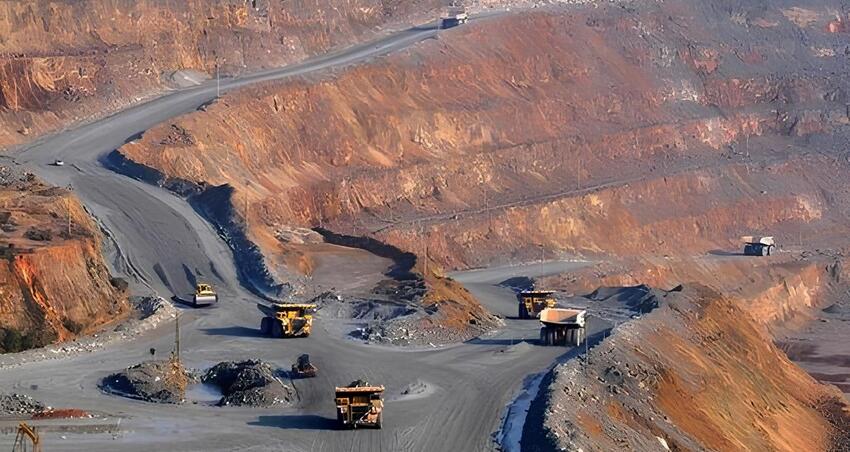By Fakeha Laique
The Balochistan Mines and Minerals Act 2025 has been one of the major legislative initiatives, designed to update the governance structure that controls resource extraction within the province.

The region of Balochistan has been blessed with wide-ranging deposits of precious minerals such as gold, copper, and rare earth minerals. But despite having a lot of natural resources, the province remains underdeveloped, creating a paradoxical situation. The situation poses an important question before the community: Will the Act deliver equitable benefits to Balochistan in totality, or will it continue the historical trend of extraction without development?
Historically, there have been perceptions that Balochistan has faced massive discontent at the hands of the centre as its natural resources are exploited. The federal government has repeatedly launched major mineral extraction projects like Reko Diq and Saindak, which people of the province believe to be improperly planned and unfairly distributing benefits. The provincial government gets 25% from Reko Diq and 6.5% from Saindak, but the local population sees less to no development in the area. Perceptions of unfair federal control and unclear methods for managing resources ignite the people’s anger.
Furthermore, the 18th Constitutional Amendment grants provinces full control of their natural resources. While this amendment was much needed for Balochistan because it officially validated provincial power over natural resources, it also opened doors for mismanagement and corruption. This allowed the Petroleum and National Resources ministries to regularly impose their authority over resource management. This new Act, which has taken effect, dilutes the constitutional privileges of the province. Instead of the Act delivering true provincial autonomy over mineral resources, which is the primary dispute, deliberate ambiguities and operational structures in the Act create opportunities for federal influence. Such as it vaguely categorizes a few minerals as “strategic”, allowing for federal representation and oversight over provincial departments.
Today, minerals hold strategic importance rather than just being buried rocks. Their strategic significance attracts foreign investment, given the growing global demand for minerals like copper and lithium. In this scenario, Balochistan’s mineral-rich territories have become essential for the country’s international strategy. The 2025 Act properly acknowledges foreign investment potential, but hands substantial authority to the federal government, particularly in areas designated as “sensitive zones” that cover almost the whole of Balochistan, given its security situation. That is why strict provincial authority must remain in place to prevent the repetition of past mistakes.
The main issue centres on what could be the potential gains for Balochistan? Local employment opportunities are absent in the current Act, along with proper revenue-sharing mechanisms and environmental safeguards. Due to lack of specific legal provisions to deliver mining royalties directly to the provincial population and create job quotas for residents implies that economic advantages from mineral extractions might miss their intended recipients in Balochistan. The underlying threat emerges from distant capitals that profit alongside foreign investors, since this could lead to perpetual underdevelopment and rising frustration within Balochistan. The present conditions call into question the equitable resource-sharing framework between people and the actual recipients of long-term resource management benefits. Nonetheless, it’s the people of Balochistan who deserve to thrive the most.
The prevention of historical failures requires the immediate implementation of several policy recommendations. The Act must explicitly define strategic minerals because this would limit federal government actions related to such minerals. The Act requires specific royalty amounts for district development funds to be defined through binding provisions. Provincial approvals for all contracts with foreign investors must undergo transparent procedures to maintain transparency in all agreements. There is a necessity for independent oversight bodies from civil society, along with academia and local government representatives, to maintain accountability.
The mineral reserves of Balochistan have the potential to trigger economic change, but at the same time, provide a chance for exploitation. The provincial government needs to act wisely for the sake of its people. The Mines and Minerals Act of 2025 had the potential to establish positive leadership for the region. But without essential modifications, the legislation will become yet another regrettable account of resources taken, and opportunities lost. Therefore, it’s insufficient to simply dig deeper; we must also think deeper about who truly owns the land beneath our feet.
Author: Fakeha Laique – International Relations graduate from BUITEMS, currently working as a research intern at Balochistan Think Tank Network (BTTN), Quetta, Pakistan.
(The views expressed in this article belong only to the author and do not necessarily reflect the editorial policy or views of World Geostrategic Insights).







